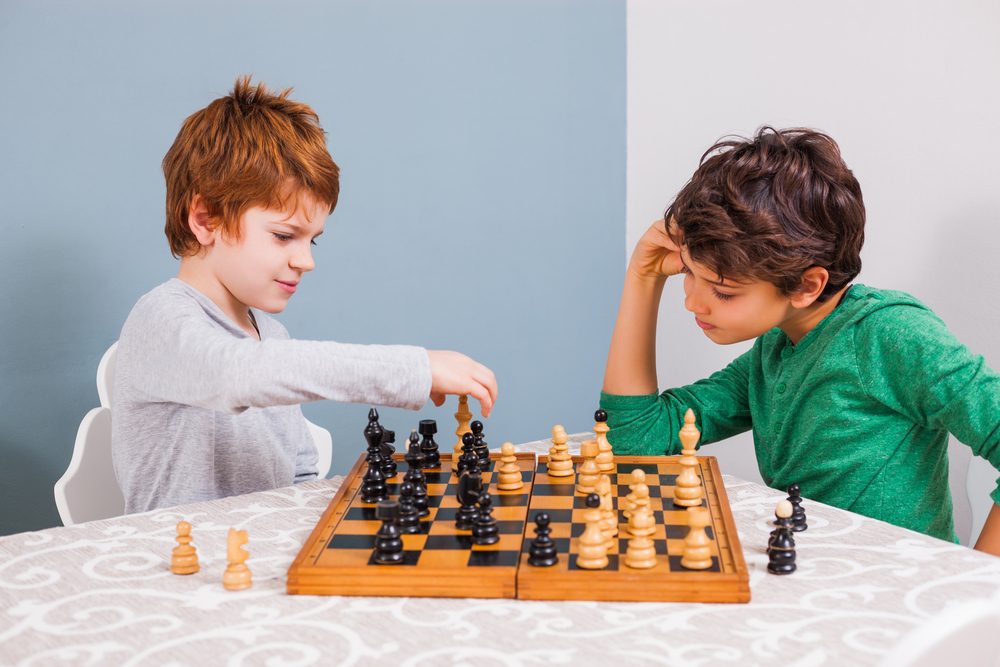Comparing quantities Worksheets for Ages 4-5
5 filtered results
-
From - To
Explore our engaging "Comparing Quantities Worksheets for Ages 4-5," designed to help young learners develop essential math skills! These interactive worksheets introduce concepts of more and less, equal quantities, and number comparison through fun activities. Children will enjoy comparing groups of objects, filling in the blanks, and visual aids that encourage critical thinking. Perfect for parents and educators, these resources aim to foster a strong foundation in early numeracy, making learning both enjoyable and effective. Download our printable worksheets and watch your child's confidence grow as they master the art of comparing quantities! Ideal for home or classroom settings.
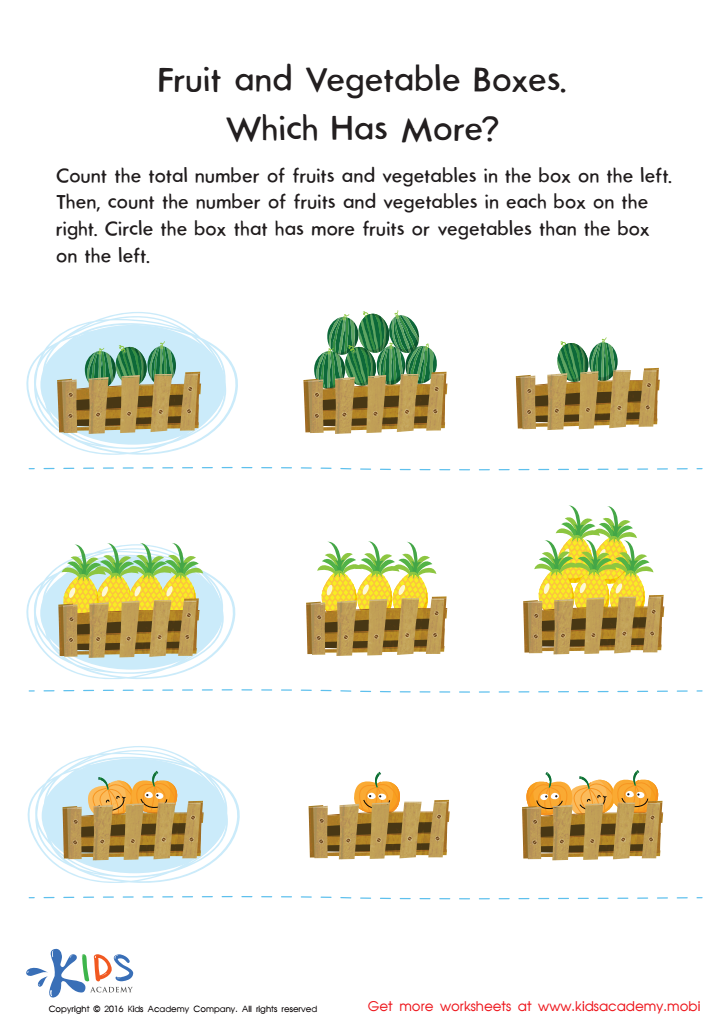

Which Has More? Size Worksheet
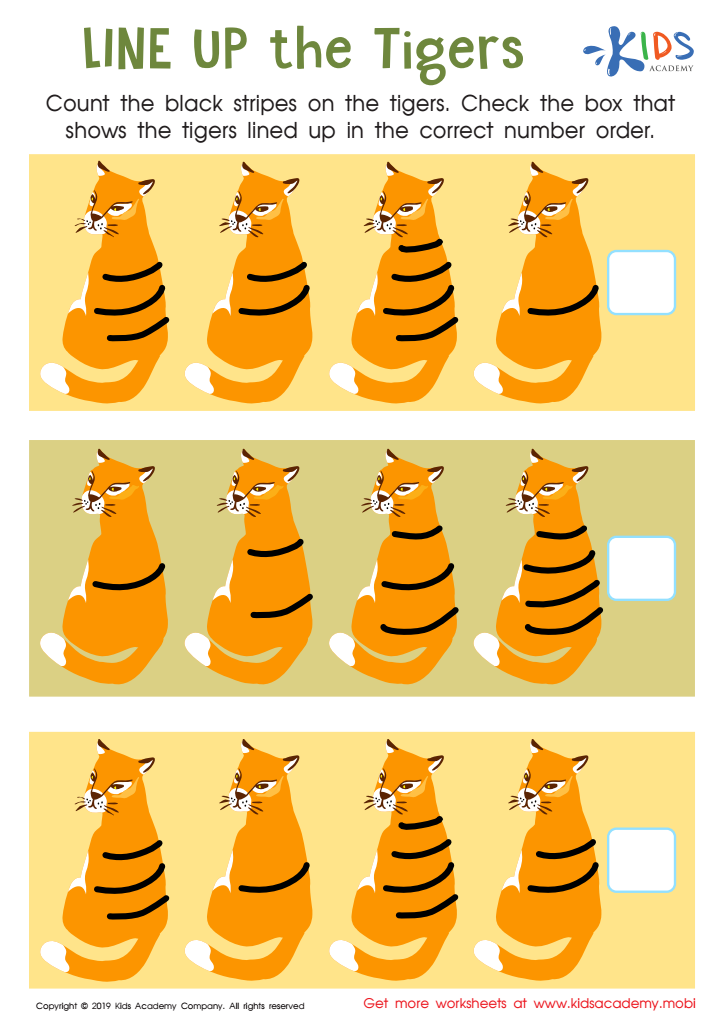

Line up the Tigers Worksheet
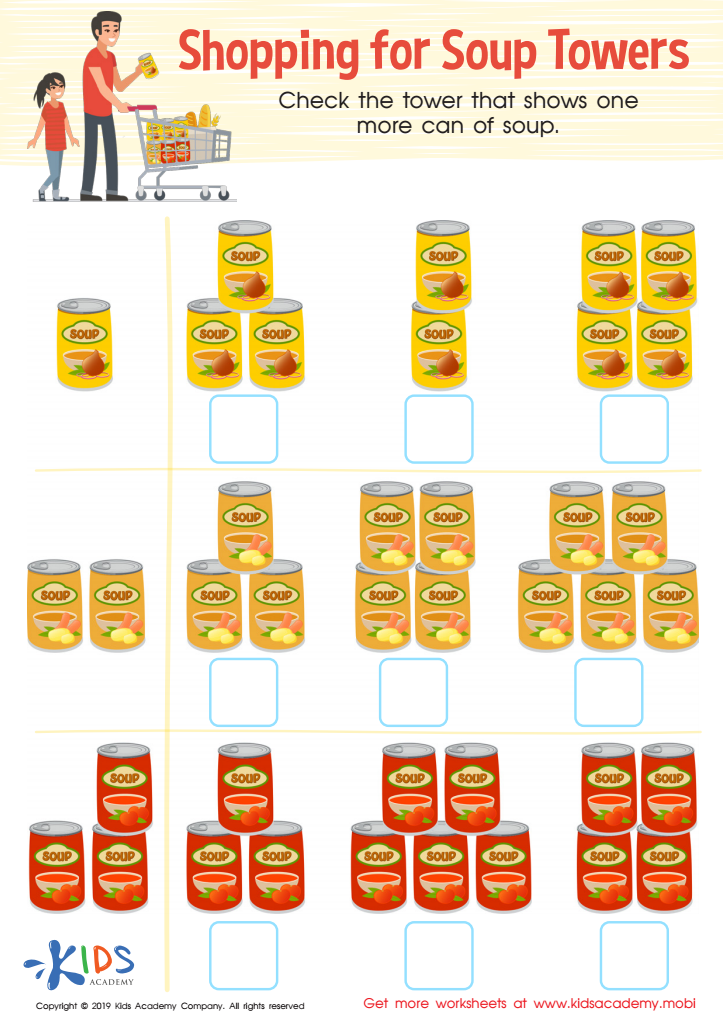

Soup Towers Worksheet
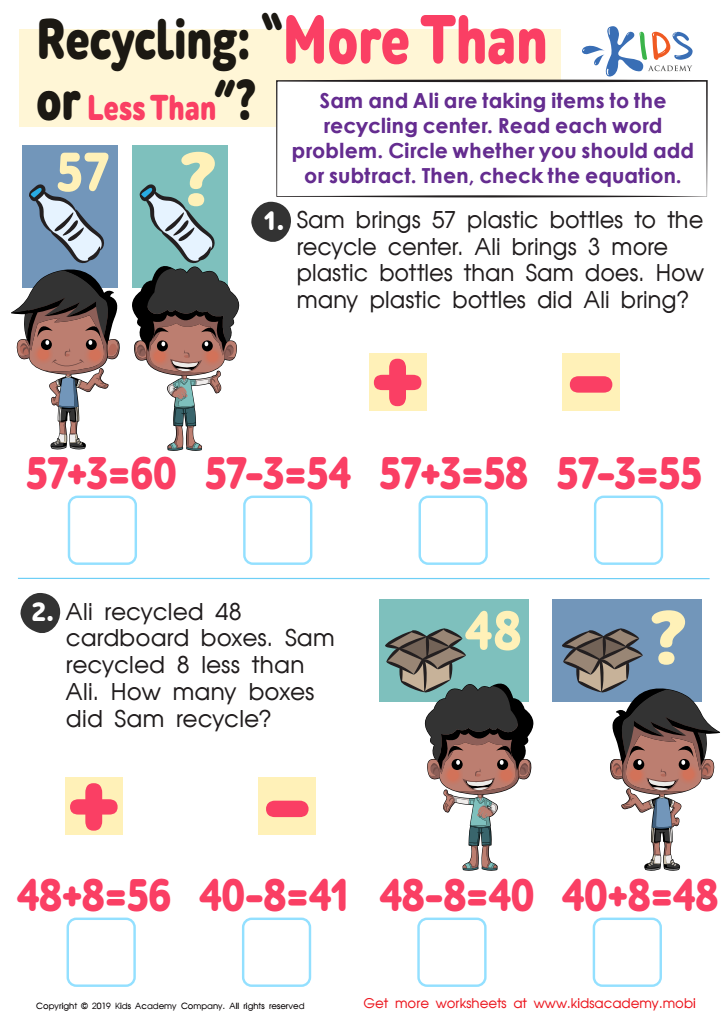

Recycling - More or Less Worksheet
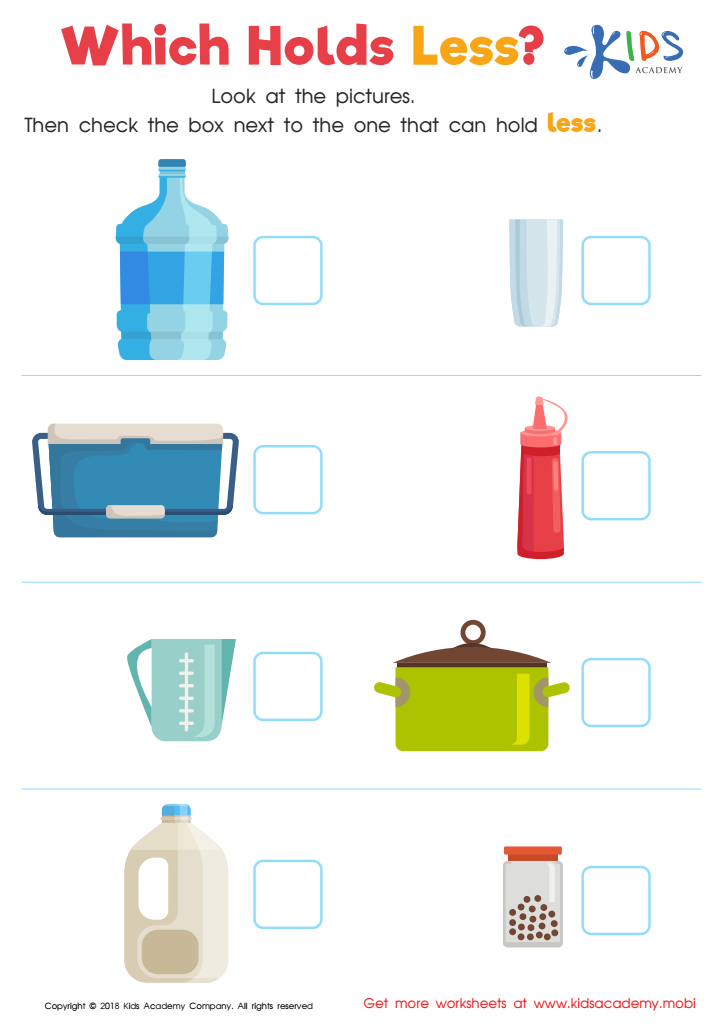

Which Holds Less? Worksheet
Comparing quantities is a foundational skill that plays a crucial role in early childhood education, especially for children aged 4-5. During this age, children are naturally curious and start to make sense of the world around them. Teaching them how to compare quantities lays the groundwork for their mathematical understanding and problem-solving skills.
Firstly, comparing quantities helps develop critical thinking. When children engage in comparing sizes, amounts, or weights, they learn to observe, analyze, and justify their reasoning. This skillset fosters cognitive development, enabling children to make decisions based on their evaluations.
Secondly, understanding quantities enhances language development. As children articulate their thoughts about more, less, or equal, they expand their vocabulary and communicative abilities, enriching their conversations and interactions with others.
Lastly, this skill supports everyday life scenarios. By practicing comparing quantities, children learn to manage resources, understand sharing, and recognize fairness, all of which are vital social skills.
For parents and teachers, fostering these skills is essential to nurturing well-rounded individuals who are not only mathematically proficient but also confident in their reasoning and social abilities. Engaging children in fun activities involving comparisons, such as counting snacks or sorting objects, can deepen their understanding in an enjoyable way.
 Assign to My Students
Assign to My Students








